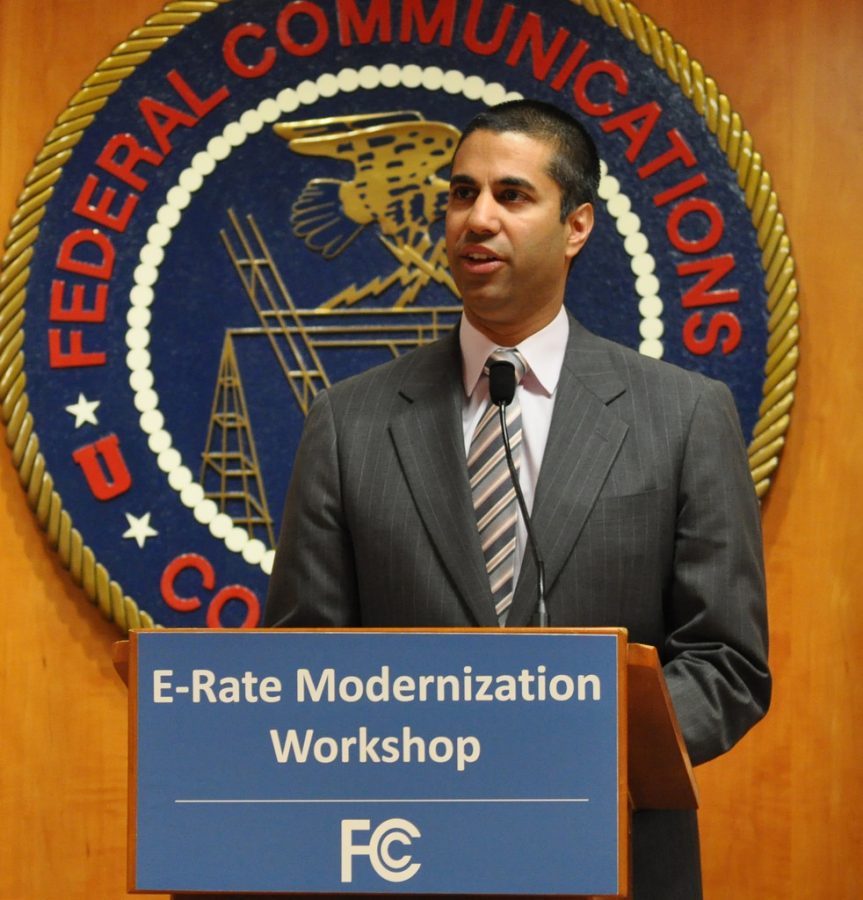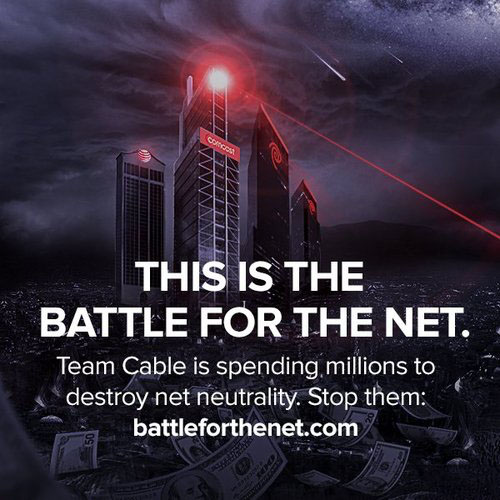The landscape of the internet could be changing soon. The Federal Communications Commission has introduced a motion to repeal net neutrality, an important tool for internet access in the U.S. The name of the plan is “Restoring Internet Freedom,” which is an ironic title, considering it may be restricting more of an individual’s internet usage.
Net neutrality is a set of laws that prevent internet service providers from charging users more money for access to certain sites.
Cable television is an example of this principle in action. If a user has Comcast as their TV provider, Comcast charges them for monthly access, and it charges extra for access to channels such as HBO and Showtime. If net neutrality is repealed, then ISP’s can do the same with certain websites, meaning access to sites such as Netflix could cost you an extra few bucks.
To the infrequent internet user, this idea may not sound horrible. However, one needs to consider that the amount of content on TV and internet is not comparable. The internet is vast, and having the ability to put a price tag on accessing certain websites is a terrible precedent.
Consider the fact that channels such as HBO and Showtime are not exactly detrimental to a person’s livelihood. With the repeal of net neutrality, ISPs could be placing a price tag on access to even the most basic news or information websites, and if one isn’t able to afford the extra fees, they could be left in the dark.
That said, companies having both the ability to charge these fees, and backing from the government to do so is a frightening predicament. Since the inception of the internet, the fundamental principle is that it can be accessed by anyone, anywhere, at anytime. That’s why the repeal of net neutrality is a threat to our basic rights of internet usage. The rules prevent ISPs from being unethical, and making a quick buck off of people’s basic rights. Taking away net neutrality means that the people will be unable to use the internet without heavier interference from their own service provider.
It’s hard to know for sure what exactly these corporations will do in the event that net neutrality is repealed. Some of the largest ISPs in America have said they will continue to support net neutrality, despite its potential repeal. However, it’s unknown whether these corporations will actually stay true to their word.
Despite saying that they will support the principles of net neutrality, companies such as Verizon have gone on record saying they support the repeal of certain aspects of net neutrality.
Removing net neutrality will give ISPs a motive to gain a competitive edge. One may say that ISPs wouldn’t dare charging extra for access to certain sites with the risk that they may lose customers. All it takes is for one corporation to enact new charges for it to become a market standard.
The person leading the charge to repeal net neutrality is FCC director Ajit Pai. Pai is heavily against the ideas of net neutrality.
While it’s unfair to assume that Pai and other regulators have been collaborating with ISPs to push these regulations, it does seem a bit suspicious. There likely aren’t that many people who want to pay extra for their internet service. It would seem that these corporations have certainly at least been in the ears of officials pushing the Restoring Internet Freedom initiative.
Removing net neutrality is unnecessary. The internet is an important utility in today’s society. I would go as far to say it’s the single most important source of information, above TV and radio. Restricting access to it in order to make more income is unethical, and takes away access to a tool that every U.S. citizen is entitled to.






